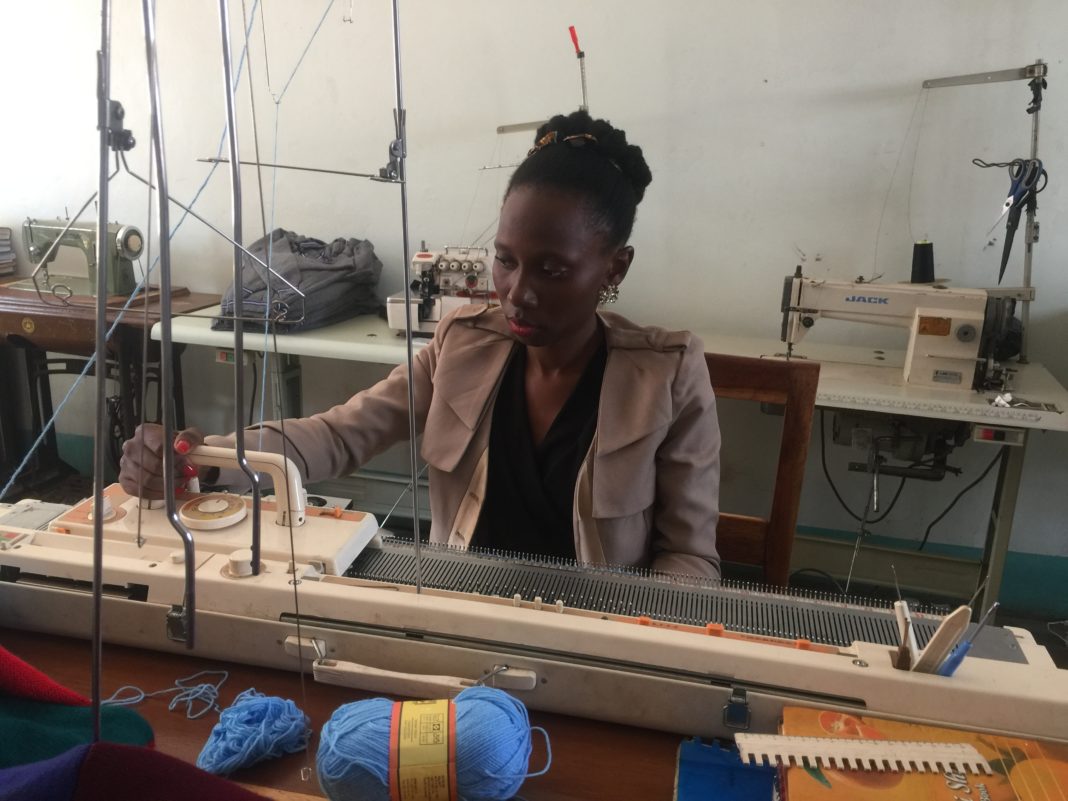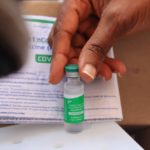By Wesibade Halima
If anyone had told 28 years Deborah Kuteesa that her fortune would turn around during the global crisis that was Covid-19 she would probably laugh out loud. And yet what was a very difficult time in her family turned out to be the silver lining in the cloud of her life.
In March 2020 Uganda went for its first Covid-19 lockdown. The uncertainty that came with the pandemic left thousands from different walks of life affected socially, economically, and to some degree physiologically. But it also birthed opportunities for hundreds more.
Deborah Kuteesa is an entrepreneur whose crocheting and knitting business had just started gaining momentum when the first lockdown happened. She used that time of confinement at home to improve her skills in crocheting and also learned knitting which saw the birth of her embroidery company. “The second lock down wasn’t hard as the first because it found us wiser, I managed to find my way to work and I got orders here and there,” she states.

Deborah was one of those who went into a COVID lockdown so uncertain only to emerge with a successful embroidery business employing several youth. “Running a business during lockdown was a buildup so I never felt the burden, I won’t say mine wasn’t affected but am not the type that gives up I was able to buy a machine , made a lot of noise on social media because am very good at online marketing and taking good photos which persuaded people to buy from me, also the lockdown created a middle-ground in business which made it easy to penetrate the market, and above all God saw us through, it was indeed my turning point,” she states.
Deborah had been employed at an Internet café before the lockdown but when the virus continued surging she left her job to stay home because of her mother’s heart condition which rendered her vulnerable to the virus.
As the lockdown restrictions continued to be lifted many Ugandans expressed an agile and innovative attitude towards business, Companies adapted and adjusted their business models using technological innovations. In a United Nations Socio-Economic Impact Assessment of COVID-19 in Uganda May 2020. The most popular adaptation measures included the use of digital and communication technologies as well as new procurement/supply delivery channels, use of telephone communication to reach out to customers and receive orders and payments.

It is following the effects of the lockdown that Deborah started crocheting as a pastime. Deborah further stresses that the lockdown opened her up to the possibilities presented by social media. She started to use it as a sales channel and in time her sales grew during the lockdown. “The only bit was it being slow, rent issues but my landlord was very generous to let me clear at my pace, but after lockdown that’s when I fully launched into sweaters. Luckily I got a client who took my samples and when schools opened up opportunities found me prepared I got my biggest order of 200 sweaters which was a very big milestone,” she says.
Today Deborah has over 200 orders and has been able to train seven youths whom she then employs. .“ For me training others is one way to make money, but I also desired to employ people that I have personally trained because I get to pour myself into them besides the knitting,” says Deborah.

After suffering the loss of her father Sarah Nantege, 19 years old Deborah’s trainee wasn’t able to continue with her studies, she dropped out of school in form three. However Miss Nantege did not stop dreaming until she was presented with an opportunity to train at Dmolds (Deborah’s company).
“Acquiring these skills has been life-changing because I have been given a career to identify with regardless of the fact that I was not able to complete my studies, thanks to my mother who agreed to me joining this company,” says Sarah.

Meanwhile Joan Nabulime an employee and trainer at DMolds embroidery never really pictured her self-doing knitting, but in looking for what to do after seating her final high school exams thoughts of what to do while she waits to join university started shooting and luckily Deborah Kuteesa was willing to train her “I am very proud of who I’ve become through Dmolds, I am able to sustain a living from the salary I get, and most importantly this job has taught me not to look down at jobs,” Nabulume emphasized that the youth tend to reject certain opportunities in search for white color jobs yet at times what you look down on is your calling.

At only 28 years Deborah Kuteesa has at least six families benefiting directly from her company; however, she feels that her dream will only come to pass when she starts to import her yarn (thread), have an established training school, be able to produce a variety of products and open up a shop for her finished products.
According to a 2020 Economic Policy Research Centre (EPRC) effects of Covid-19 survey report, the containment measures such as transport restrictions, quarantine, and social distancing. Micro and small businesses like Deborah’s experienced a larger decline in business activity compared to medium and large firms since most of the micro and small businesses could not meet the standard operating Procedures (SOPs) such as the provision of on-site accommodation for employees, In addition, employees of SMEs used public transport—which was banned on 25th March 2020. However, the same survey showed the Ministry of Finance, Planning and Economic Development, and Bank of Uganda reports that the economy is recovering steadily which could be attributed to the coronavirus crisis which created a practical and ethical imperative for people to do more work that matters.

This publication was produced with the financial support of the European Union. Its contents are the sole responsibility of Wesibade Halima and do not necessarily reflect the views of the European Union.








